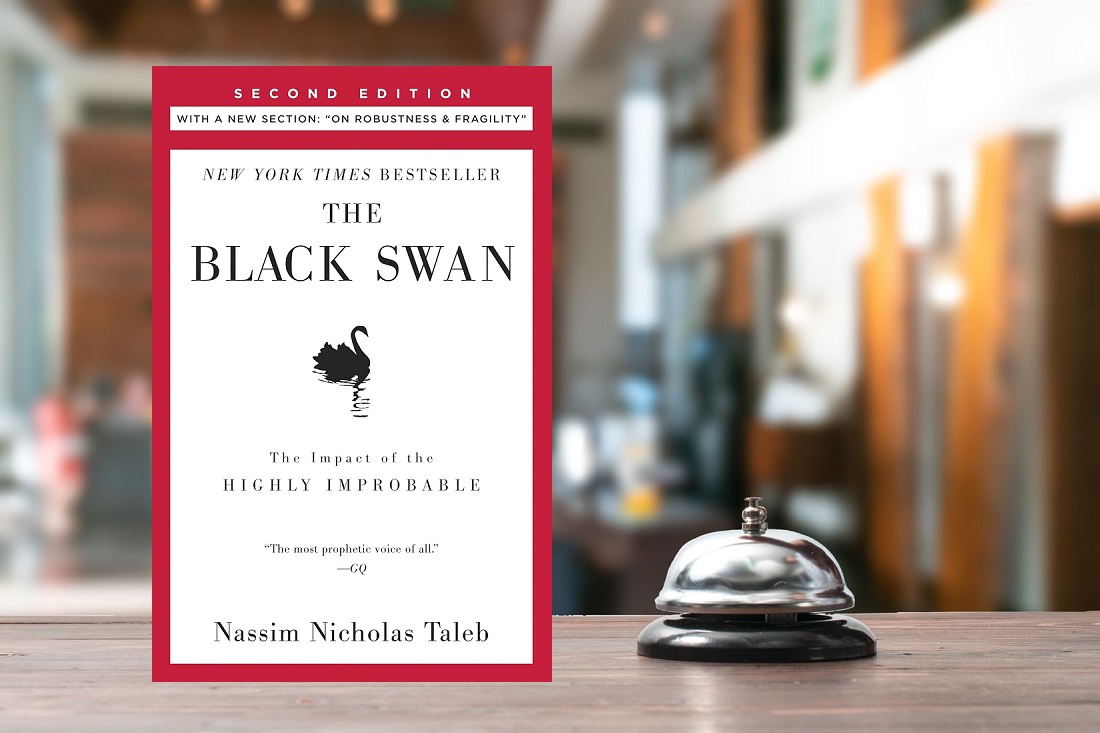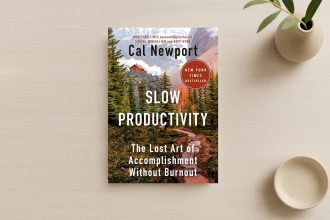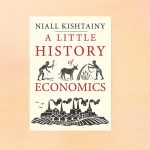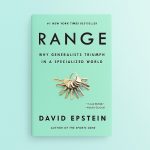In The Black Swan: The Impact of the Highly Improbable, Nassim Nicholas Taleb presents a provocative exploration of unpredictable, high-impact events, termed “Black Swans” that shape history, markets, and our lives. Challenging conventional wisdom, The Black Swan by Nassim Nicholas Taleb argues that humans are blind to randomness, overestimating predictability while underestimating the role of rare, game-changing occurrences. Blending philosophy, economics, and statistics, he critiques the limitations of Gaussian models, exposes the fallacy of narrative explanations, and advocates for robustness (“antifragility”) in systems. With wit and erudition, Taleb reshapes how we perceive uncertainty, risk, and knowledge itself. This review examines his central thesis, its relevance in finance and science, and the book’s enduring influence on decision-making in an uncertain world.
1. Introduction to The Black Swan by Nassim Nicholas Taleb
When Nassim Nicholas Taleb published The Black Swan in 2007, he introduced a concept that would not only reshape discussions in economics, finance, and risk management but would also seep into everyday business and cultural conversations. The metaphor of the “black swan” – an unpredictable and rare event with massive impact – has since become part of the modern vocabulary.
From the 2008 financial crisis to the COVID-19 pandemic, events once thought improbable have redefined economies, industries, and personal lives. Taleb’s book couldn’t be more relevant: it’s a call to prepare for what we cannot predict and to understand the limits of our knowledge.
This review will take you deep into the intellectual architecture of the book – its central arguments, major takeaways, and real-life applications – while also weighing its strengths and weaknesses. Whether you are a curious general reader, a business leader, or simply someone fascinated by uncertainty, this breakdown will help you determine if The Black Swan deserves a place on your must-read list.
2. About the Author – Nassim Nicholas Taleb
Nassim Nicholas Taleb is a Lebanese-American statistician, scholar, risk analyst, and former trader. His career spans both the theoretical and the practical sides of risk management. Born in 1960 in Amioun, Lebanon, Taleb experienced political instability and war firsthand. This early exposure to unpredictability shaped his thinking about rare, high-impact events.
Taleb’s professional life began on Wall Street, where he was known for unconventional strategies that emphasized hedging against unlikely but catastrophic scenarios. Unlike many in finance who chase predictable returns, Taleb focused on being prepared for market “outliers.”
Beyond his professional career, Taleb is a prolific thinker and writer. His five-book series Incerto – which includes Fooled by Randomness, The Black Swan, Antifragile, Skin in the Game, and The Bed of Procrustes – explores ideas about risk, knowledge, and decision-making in a complex world.
3. Overview of The Black Swan by Nassim Nicholas Taleb
At its core, The Black Swan is about recognizing and preparing for events that lie outside the realm of regular expectations. The term comes from the historical belief in Europe that all swans were white – until explorers in Australia discovered black swans, shattering a widely held assumption.
Taleb’s central thesis:
- Rare events happen more often than we think.
- These events have massive consequences.
- Human beings are terrible at predicting and preparing for them.
The book is a mix of storytelling, philosophy, history, and statistical reasoning. Taleb challenges traditional forecasting methods, arguing that our models of reality underestimate the likelihood and impact of extreme events.
4. Main Ideas & Concepts
- The Black Swan Event
A Black Swan event meets three criteria:
– It is unexpected by the observer.
– It has a massive impact.
– It is rationalized in hindsight, as if it could have been predicted.
Examples: the rise of the internet, the 9/11 attacks, the 2008 financial meltdown, and the COVID-19 pandemic.
- Mediocristan vs. Extremistan
Taleb divides the world into two domains:
– Mediocristan: Where variation is small, predictable, and follows a bell curve (e.g., human height).
– Extremistan: Where variation is large and unpredictable, and extreme events dominate (e.g., financial markets, book sales, pandemics).
- The Problem with Prediction
Taleb argues that most statistical models ignore extremes and focus on the “average,” which leads to disastrous miscalculations in domains governed by Extremistan.
- Narrative Fallacy
We create stories to explain the past, making it seem more predictable than it really was. This illusion of understanding prevents us from preparing for future surprises.
- Silent Evidence
We remember and notice only the successes or the events that happened, ignoring all the cases that could have occurred but didn’t – leading to skewed conclusions.
- Robustness & Antifragility (Foreshadowed)
While Antifragile would later make this a central idea, The Black Swan already hints at building systems that benefit from disorder instead of being destroyed by it.
5. Key Lessons from The Black Swan
– Expect the unexpected. Instead of trying to predict rare events, design systems that can withstand or benefit from them.
– Diversify your exposure. Avoid putting all your resources in scenarios that fail in extreme situations.
– Beware of overconfidence. What you “know” might be dangerously incomplete.
– Embrace humility in forecasting. Accept that you will often be wrong, especially with long-term predictions.
6. Pros of the Book
- Groundbreaking Concept – Taleb has given an accessible metaphor for a complex statistical idea.
- Cross-Disciplinary Appeal – Applicable to economics, business, science, history, and everyday decision-making.
- Memorable Storytelling – Taleb blends humor, anecdotes, and personal stories into academic concepts.
- Actionable Philosophies – Offers clear advice about preparing for uncertainty rather than chasing unattainable certainty.
7. Cons of the Book
- Author’s Tone – Some readers find Taleb’s style arrogant or dismissive of opposing viewpoints.
- Dense for Beginners – Concepts like probability distributions and epistemological critiques might overwhelm casual readers.
- Repetition – Some ideas are revisited multiple times, which can feel redundant.
8. Impact & Relevance Today
Since publication, The Black Swan has been cited in discussions about:
– Finance crises (2008 proved Taleb’s main points dramatically).
– Public health (The COVID-19 pandemic brought his ideas to the forefront).
– Technology disruption (unexpected innovations reshaping industries).
– Climate change risks (low-probability, high-impact events with irreversible consequences).
9. Application in Real Life
Here’s how readers can apply The Black Swan principles:
– Investing: Avoid fragile portfolios; include assets that perform well in crises.
– Career Planning: Build adaptable skills; avoid over-specializing in vulnerable fields.
– Business Strategy: Prepare contingency plans for unlikely scenarios.
– Daily Life: Save for emergencies, think in terms of ranges and worst-case scenarios.
10. Verdict & Recommendation
The Black Swan by Nassim Nicholas Taleb is a rare book that changes how you see the world. While it demands focus and patience from the reader, its payoff is enormous. For anyone in business, economics, policy-making, or simply navigating life’s uncertainties, Taleb’s work is essential reading.
10. Conclusion
In an age defined by surprise – financial crashes, pandemics, and technological upheaval – Taleb’s insights in The Black Swan are more relevant than ever. If you want a framework for thinking about uncertainty and preparing for the unpredictable, this book belongs in your library.
Whether you’re making investment decisions, running a company, or simply planning your future, embracing the idea that rare events can – and will – shape your life may be the smartest risk decision you ever make.
If you found this review helpful, please share it or leave a comment below.






















One Comment
The Black Swan by Nassim Taleb is a mind-bending exploration of unpredictable, high-impact events. Taleb challenges our reliance on predictability, exposing how rare, unforeseen events shape history. Packed with sharp insights on risk, randomness, and human blindness to uncertainty, this book reshapes how you think about the world essential for investors, thinkers, and decision-makers!